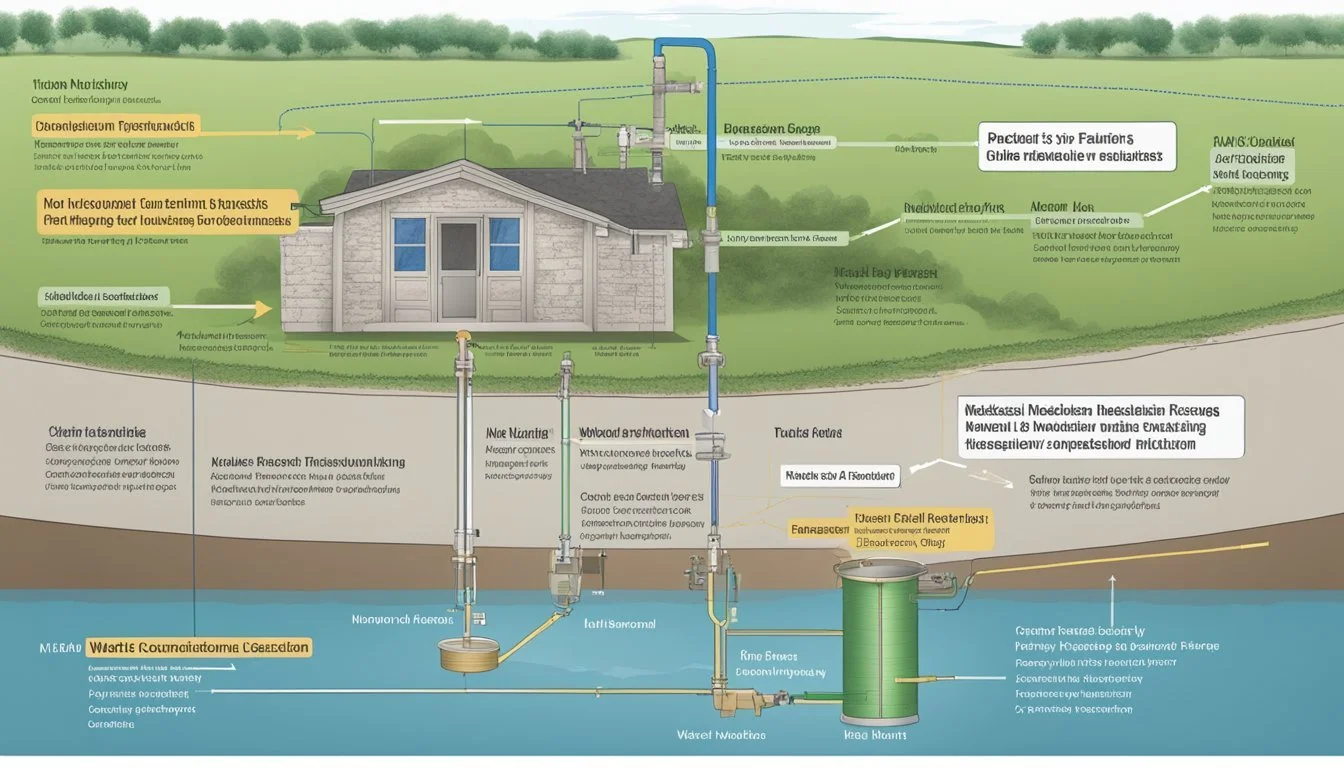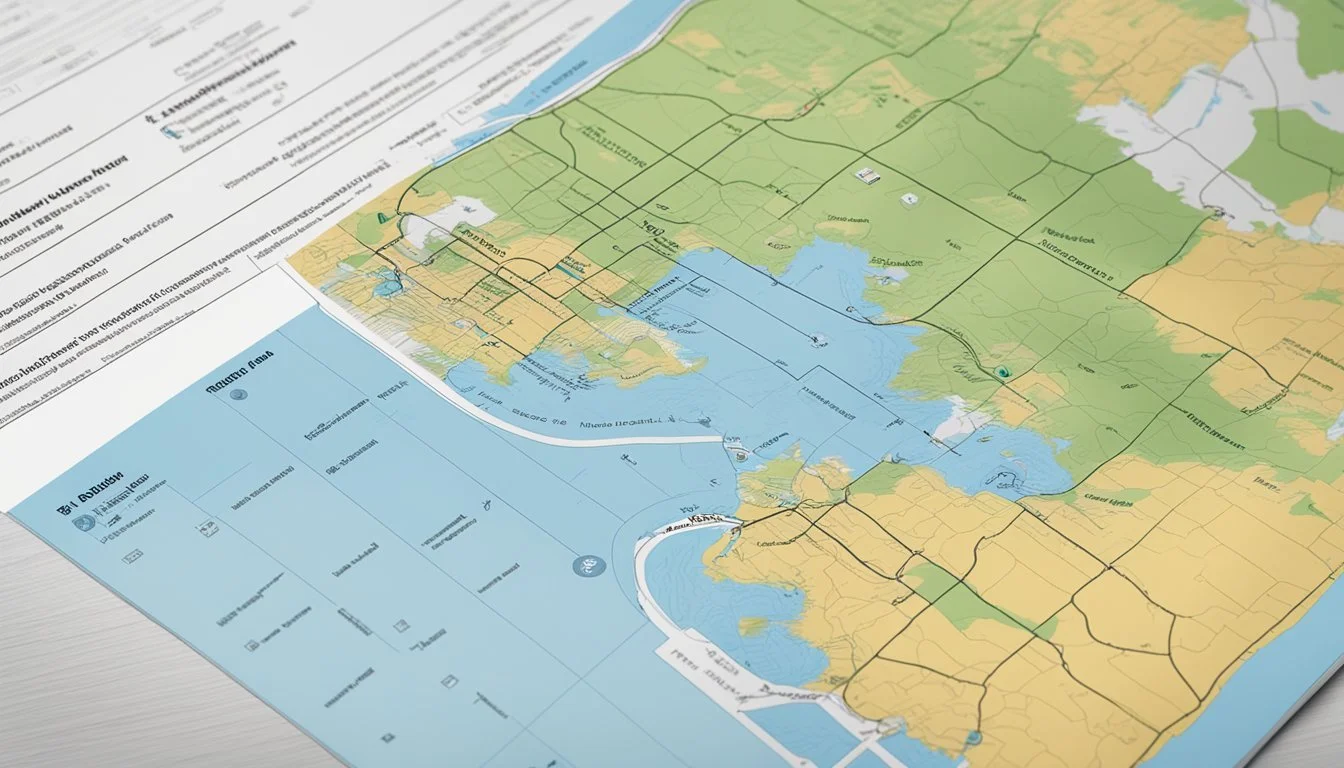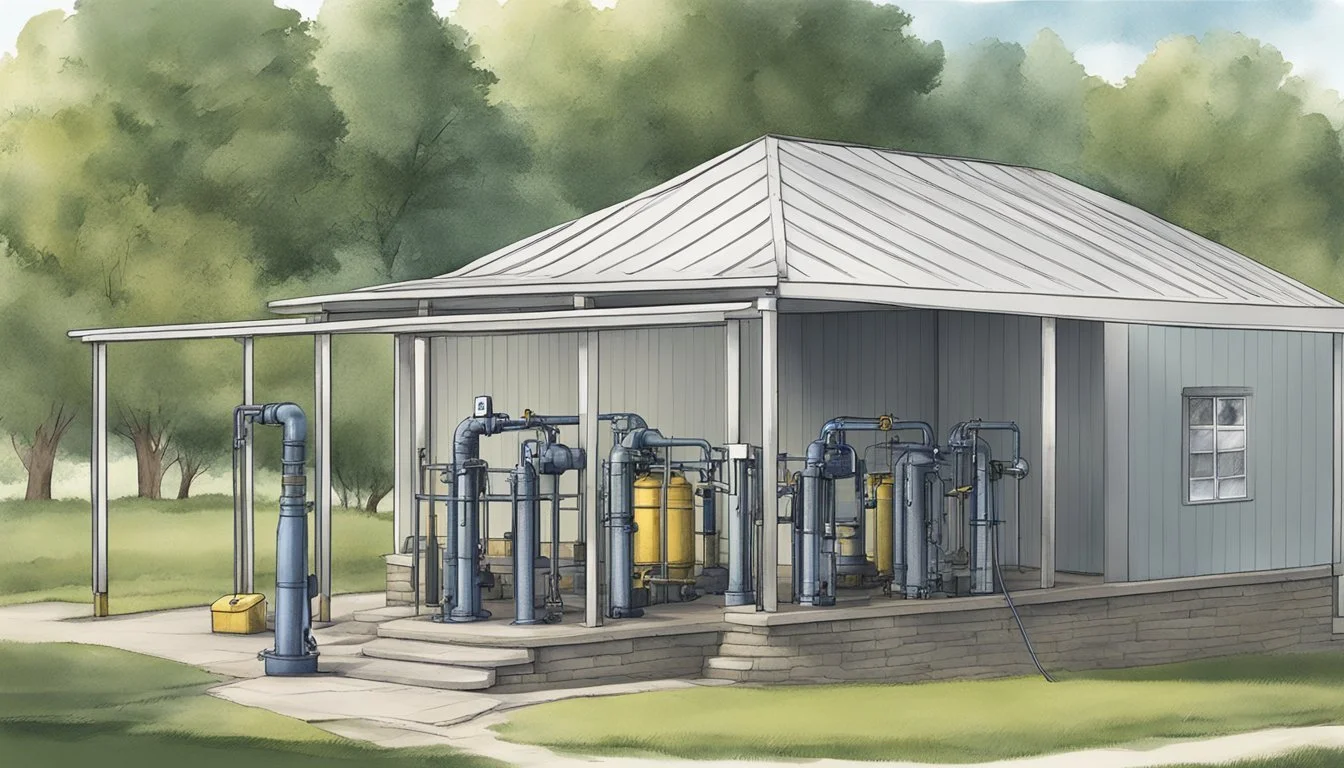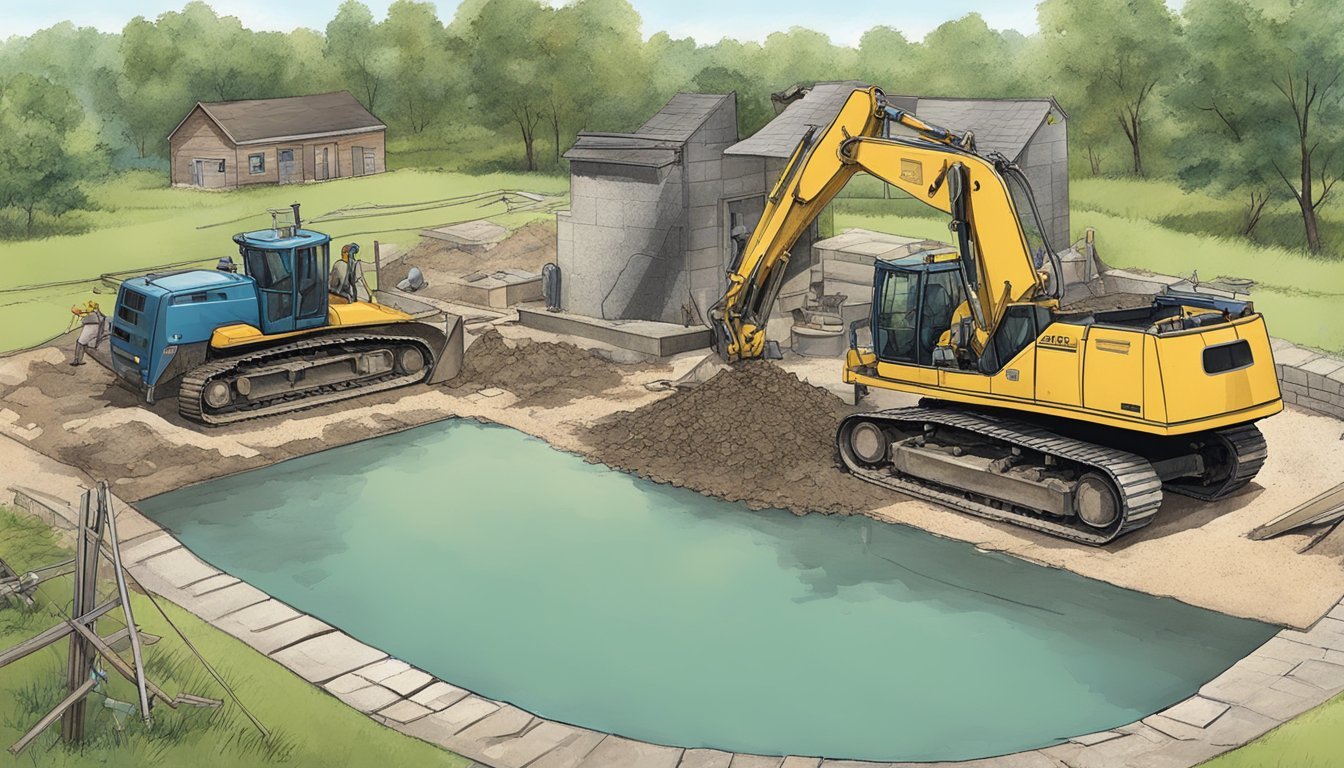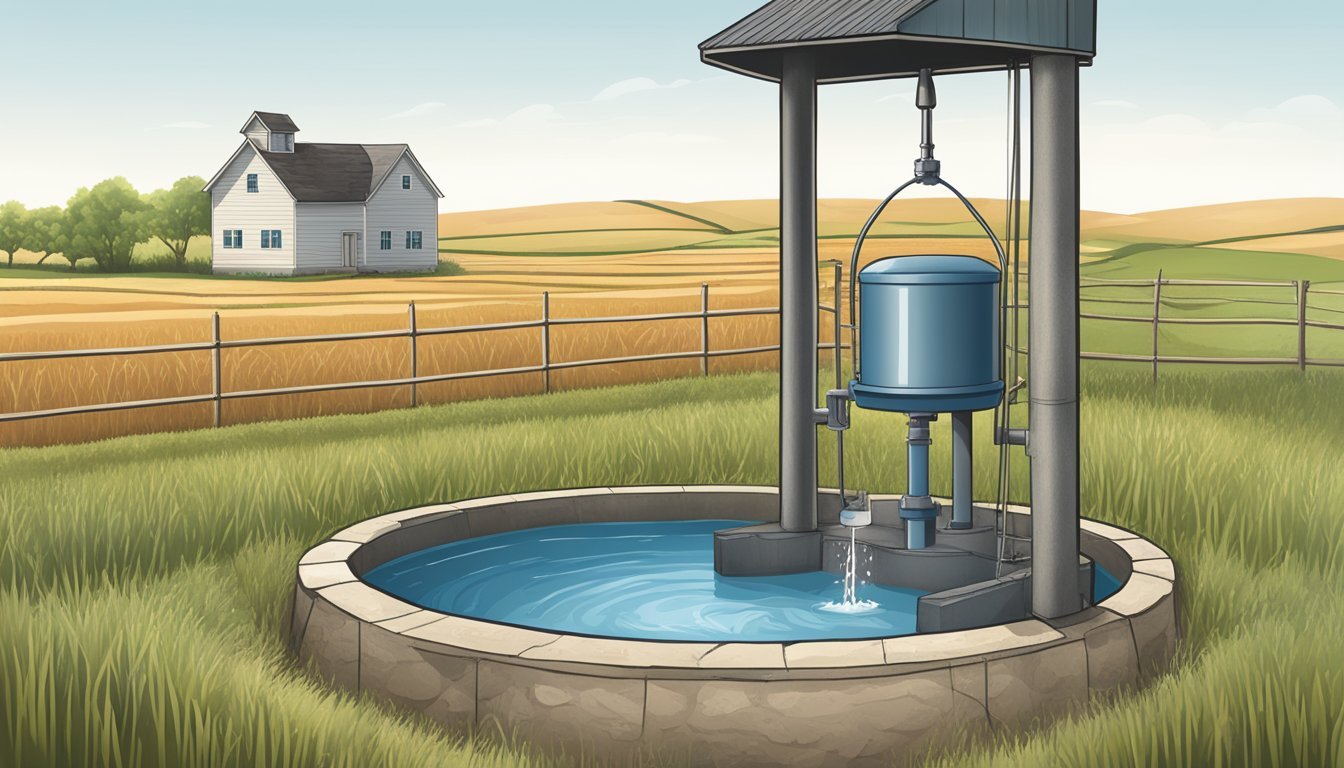Nebraska Water Well Regulations
Understanding Compliance for Well Owners
Nebraska takes the regulation of its water wells seriously to ensure the protection and responsible use of the state's groundwater resources. These regulations are in place to manage and safeguard water supplies for both current and future generations. They cover a range of aspects, such as the proper construction, maintenance, and decommissioning of wells, to prevent water contamination and preserve the integrity of water sources.
The Nebraska Department of Environment and Energy oversees the Water Well Standards and Contractors' Licensing Program, which ensures that all water well contractors are licensed and follow strict procedures for water well construction. This program's purpose is twofold: to protect Nebraska's water quality and to assure that its water supply systems are properly installed and maintained.
The state also has provisions for the registration of all water wells. According to the Department of Natural Resources, every water well completed in Nebraska must be registered within a certain period after its construction. This registry is a crucial element in managing the state's groundwater resources, allowing for an informed approach to water use and conservation efforts. This information becomes a central repository that aids in the analysis and strategic planning for the state's water resource management.
Regulatory Framework
In Nebraska, the management and oversight of water wells are under a defined regulatory framework, which ensures the sustainability and safety of groundwater resources. This framework is administered by various authorities and is detailed in key pieces of legislation.
Governing Bodies
Nebraska Department of Natural Resources (NDNR) and Natural Resources Districts (NRDs) are the primary governing bodies overseeing water well regulations in the state. The NDNR is charged with the broad management of the state's natural resources, including groundwater. Meanwhile, NRDs are local government entities that are tasked with managing water resources issues at the local level.
Nebraska Department of Health and Human Services (NDHHS) is also involved in the licensure and oversight of water well contractors, ensuring public health standards are met in the provision of water well services.
Key Legislation
The regulatory framework is established primarily under Title 178, which is a part of Nebraska's public health environmental legislation. Specific chapters within Title 178 are critical for understanding water well standards and regulations:
Chapter 12 outlines the standards for water well construction, pump installation, and water well monitoring.
Chapter 11 sets forth the criteria for water well siting, design, and construction standards.
Chapter 13 covers procedural rules for the operation of the NRDs' Board and details concerning the licensing of water well contractors and certification of water well drilling and pump installation supervisors.
These regulations are designed to safeguard groundwater against contamination, ensure the efficiency and reliability of water wells, and oversee the proper use and management of groundwater resources in Nebraska.
Well Construction and Standards
Nebraska's regulations for water wells are designed to safeguard groundwater resources and ensure the responsible utilization of surface water. These regulations are administered through stringent standards and licensure requirements for contractors.
Construction Requirements
The construction of a water well in Nebraska requires adherence to specific requirements to prevent contamination of groundwater. These regulations, as outlined in the Nebraska DEE, mandate that wells must be constructed at a safe distance from potential sources of pollutants, and well materials must be chosen carefully to avoid leaching of harmful substances into the water supply.
Standard Specifications
Specifications regarding water well construction are comprehensive to maintain water quality. For example, the University of Nebraska-Lincoln provides guidelines including the type of casing to be used, the minimum well diameter, and the proper sealing of well caps. The standards align with the state's goal of protecting groundwater from contamination, as detailed by the Nebraska DEE.
Casing Material: Must be durable and corrosion-resistant.
Well Diameter: Minimum size standards apply.
Well Cap: Must be sealed correctly to prevent entry of contaminants.
Contractor Licensure
Only licensed water well contractors are permitted to construct, repair, and decommission wells in Nebraska. The licensure process, which is regulated by the Nebraska DEE, requires contractors to demonstrate knowledge and adherence to state regulations. They must understand both groundwater and surface water dynamics to ensure that water wells are constructed without negatively impacting Nebraska's water resources.
Licensure Examination: Tests knowledge of well construction and water safety.
Continuing Education: Mandatory to maintain licensure and stay current with standards.
Legal Compliance: Contractors must comply with all state water well regulations.
Well Registration and Ownership
In Nebraska, the legal framework mandates the registration of water wells and outlines specific duties for owners regarding their registered groundwater wells. This section details the formal procedures and obligations tied to well registration and ownership, providing insight into the associated regulatory requirements.
Registration Process
Water wells in Nebraska, with the notable exclusion of test holes and short-term dewatering wells, must be registered with the Department of Natural Resources (NDNR). The registration process necessitates submission within sixty days post-construction, as stipulated by the state statutes for wells completed after July 1, 2001. Forms for groundwater well registration are accessible and include crucial details regarding the well.
Ownership Responsibilities
Ownership comes with certain responsibilities, such as maintaining up-to-date records with the NDNR. Landowners must file written notices of any changes in ownership or address for registered water wells. Compliance with these requirements ensures orderly distribution and use of the state's water resources. Failing to adhere to these laws can lead to penalties as outlined in the state statute regarding water wells.
Change in Ownership
In cases of a change in ownership, the NDNR requires a prompt update of the water rights and well registrations by the new owners. The ownership preview of groundwater wells and surface water rights page contains forms necessary for such updates. This ensures that data on water rights and well ownership are current, providing clarity and continuity in water resource management across the state.
Operational Compliance
In Nebraska, water well regulations ensure the integrity and safety of public and private water supplies. Compliance with these standards is critical for pump installation and water well monitoring, maintaining a system free from contaminants.
Pump Installation and Maintenance
Proper pump installation is governed by the Nebraska DEE for the longevity and functionality of water wells. The process demands that contractors adhere to specific guidelines to prevent groundwater contamination. For instance, it's essential that pumps are installed with the correct seals and backflow prevention to maintain water quality. Routine maintenance checks are recorded on standardized forms that contractors must submit to the relevant state department.
Monitoring and Reporting
Regular water well monitoring plays a pivotal role in the detection of any contaminants that could compromise water quality. The Nebraska Department of Health and Human Services outlines detailed procedures on how water samples should be collected and analyzed. The findings from these analyses must be reported through official channels, utilizing designated forms, to ensure a transparent and continuous overview of water quality for regulatory bodies and the public.
Well Decommissioning
Nebraska maintains specific regulations for the decommissioning of out-of-service water wells to ensure environmental safety and compliance with health standards.
Decommissioning Process
The process of decommissioning a water well in Nebraska involves adhering to methodical steps defined in Chapter 12 of Title 178. Professionals must ensure the well is properly plugged and sealed to prevent contamination of groundwater. The appropriate procedure is critical and follows a set of standardized practices, making use of specific materials like grout to effectively seal the well.
Notification Requirements
When decommissioning a water well, Nebraska law mandates the submission of written notice. This notice should include the well's address and other pertinent details and must be completed by a licensed water well contractor or pump installation contractor. Compliance with these notification requirements is an integral part of managing water resources and safeguarding public health.
Water Quality and Protection
Nebraska's water well regulations are designed to safeguard the purity of water by preventing contamination and managing pollution sources. They also include specific disinfection procedures to ensure safe drinking water for its population.
Contamination Prevention
Prevention of contamination is a fundamental aspect of Nebraska's approach to water quality. The Nebraska Department of Environment and Energy (NDEE) outlines stringent Water Well Standards to protect aquifers and surface water from pollutants. This involves determinations around well placement, construction requirements, and sealing procedures that minimize the risk of contaminants entering the water supply.
Pollution Source Management
Managing potential sources of pollution is key to protecting Nebraska's water resources. The Department of Natural Resources has set clear groundwater statutes that identify and regulate activities which could jeopardize water quality. These include agricultural practices, industrial processes, and waste disposal mechanisms. By monitoring and regulating these activities, Nebraska ensures that pollutants are kept away from water sources.
Disinfection Procedures
When contamination is detected or suspected, the NDEE mandates specific disinfection procedures to maintain water safety. The Current Rules and Regulations For NDEE include protocols for shock chlorination and continuous disinfection, ensuring that any biological contaminants are effectively neutralized before water reaches consumers. These practices are crucial for ensuring that the drinking water meets safety standards.
Groundwater Management
Nebraska takes its groundwater resources seriously, implementing comprehensive management strategies to ensure sustainable water use and availability. Regulation and oversight are primarily carried out by local Natural Resources Districts (NRDs) with authority derived from state legislation.
Allocation and Usage
In Nebraska, groundwater allocation plays a critical role in maintaining the balance between water availability and demand, particularly for irrigation purposes, which is one of the largest consumers of groundwater in the state. The Nebraska Groundwater Management and Protection Act regulates the establishment of groundwater management areas by NRDs to oversee and control the use of groundwater. Allocation is often based on the assessed capacity of the aquifer and may be subject to change based on ongoing measurements and studies.
Permits: Necessary for dewatering wells and certain types of irrigation.
Monitoring: Regular assessment of groundwater levels by NRDs to manage allocation.
Conservation Measures: Encouraged through regulations to promote sustainable usage.
Drought Response and Shortages
When droughts occur, Nebraska's groundwater management becomes particularly focused on mitigating the impact of water shortages. NRDs work under the guidelines provided by the state to develop and enforce groundwater management plans that can include temporary regulations to curtail water usage during critical times.
Emergency Measures: Short-term restrictions on water use may be implemented.
Long-Term Planning: Development of strategies for water conservation and drought resistance.
Stakeholder Involvement: Involvement of local communities and stakeholders in dewatering and shortage planning.
By adopting these measures, Nebraska aims to protect its groundwater resources from overuse and ensure that they remain a viable source for agriculture and other needs well into the future.
Financial and Legal Considerations
Managing water resources involves navigating a range of financial costs and legal responsibilities. Owners and operators in Nebraska must be mindful of the specifics surrounding registration fees and the legal complexities associated with water wells.
Registration Fees
In Nebraska, water well owners are required to register their wells with the Nebraska Department of Natural Resources (NDNR). Registration fees vary depending on the type and use of the well. Domestic wells typically incur a lower registration fee compared to commercial or agricultural wells. As part of the water well drilling process, these fees contribute to the state's ability to manage and protect groundwater resources effectively.
Legal Disputes and Modifications
Legal disputes over water well ownership or modifications can arise when there's a transfer of land or changes in water rights. Prospective buyers and sellers must be aware of Nebraska’s water laws concerning surface water permits and groundwater well registrations. Modifications to existing water wells, whether for expansion, deepening, or changing the water source, often require approval and notification of the NDNR. In cases of disputes, legal guidance should be sought to navigate the complexities of water law, ensuring that all parties are in compliance with state regulations.
Additional Resources
The management and regulation of water resources in Nebraska hinge on informed compliance with established standards. Essential reference materials and procedures underscore this objective, particularly for public water suppliers and the accurate documentation of well logs.
Publications and Guidelines
Public Water Suppliers are encouraged to adhere to Nebraska’s integrated water management framework to ensure sustainable groundwater usage. Detailed guidelines and statutory requirements can be found in the Rules for Ground Water by the Nebraska Department of Natural Resources (NeDNR), which include directives on permits, water management plans, and other vital protocols. These publications serve as a handbook for those seeking to navigate the legal landscape of water resource management effectively.
Well Log Submissions
For upholding the centralized repository of well data, the submission of Well Logs is a critical component. The Nebraska Department of Natural Resources mandates that all newly constructed wells be registered, with their logs submitted for state records. Detailed instructions and forms are accessible on the Groundwater Well Registration page, providing a structured process for submitting these logs. Accurate well logs support the state's efforts to manage groundwater levels and allow for efficient planning and distribution of water resources.
Frequently Asked Questions
Nebraska's water well regulations are critical for maintaining the sustainability of the state's groundwater resources. This section addresses some of the most pertinent questions regarding these regulations.
What are the recent changes to Nebraska water well regulations?
Recent updates to Nebraska water well regulations have been implemented to ensure the efficient use of groundwater and to protect the water supply. One can review the latest regulatory adjustments through the Nebraska Department of Natural Resources for the most accurate information.
How can I obtain the latest Nebraska water well regulations documentation?
The current documentation for water well regulations in Nebraska is available through the Nebraska Department of Natural Resources website, which provides centralized information and forms related to groundwater wells.
Where can I find the registration details for a specific well in Nebraska?
Registration details for specific wells in Nebraska are maintained by the state. Access to this data can be requested through the Department of Natural Resources' Groundwater Well Registration page.
What organizations oversee water well drilling professionals in Nebraska?
The Nebraska Department of Environment and Energy is responsible for overseeing water well drilling professionals in the state, implementing standards and licensing for contractors.
Are there any requirements for drillers to be licensed in Nebraska before drilling a well?
Yes, in Nebraska, water well drillers and pump installation contractors are required to be licensed. These regulations are enforced to safeguard groundwater and to ensure the proper construction and decommissioning of wells, which is overseen by the Nebraska Department of Environment and Energy.
How does the state of Nebraska manage and provide access to its well water data?
The state of Nebraska uses a permitting system to manage groundwater resources and provides access to water well data through written requests, which can be submitted to the Nebraska Department of Environment and Energy. This systematic approach facilitates orderly water use and preserves the availability of groundwater information for public review.


